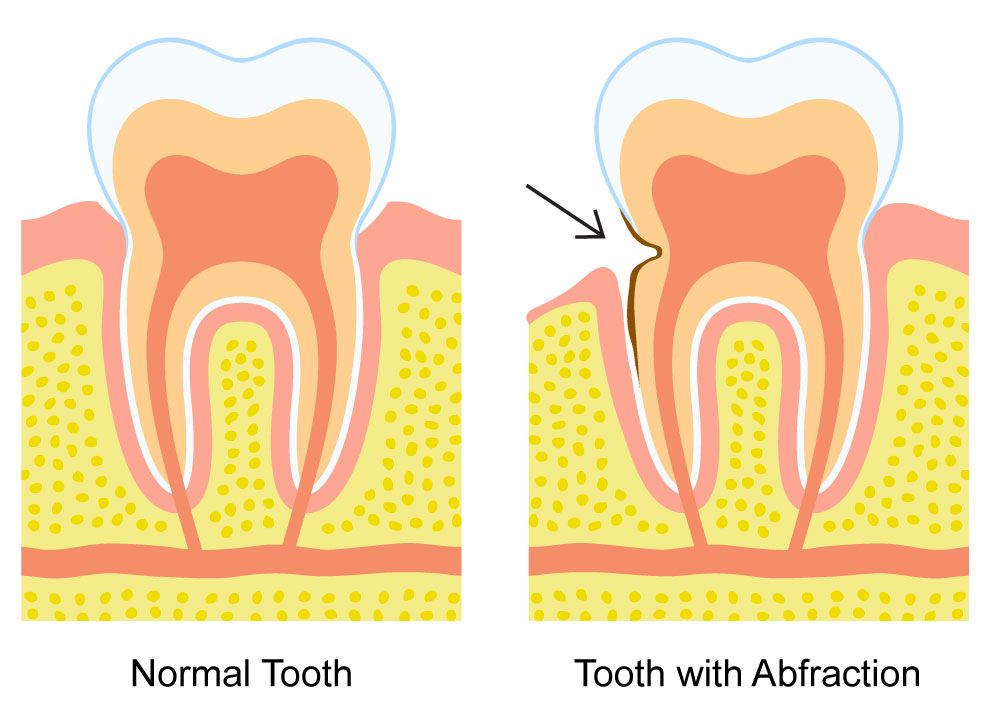Abfraction: What Is It, What Causes It, and Can It Be Treated?
 A leader in advanced dentistry, Dr. Bruce Wilderman has helped countless people in the Philadelphia area smile with confidence again. Offering advanced restorative dentistry treatment for issues affecting the teeth and gums, we have been able to treat even very complex dental problems.
A leader in advanced dentistry, Dr. Bruce Wilderman has helped countless people in the Philadelphia area smile with confidence again. Offering advanced restorative dentistry treatment for issues affecting the teeth and gums, we have been able to treat even very complex dental problems.
One such issue comes up a fair amount but patients are unaware of what it really is. We're talking about dental abfraction. Do not worry if you've never heard the term before. We'll go over the basics right now.
Dental Abfraction Defined
Dental abfraction refers to lesions that form where the tooth meets the gumline. These lesions typically take the form of a small notch at the top of a tooth. Many would assume that the lesion is the result o tooth decay or dental erosion, but in fact, the lesion forms as a result of the forces exerted on the teeth from regular wear and tear.
Origins of the Term “Dental Abfraction"
The term "abfraction" was first used to discuss this type of hard tissue dental lesion/notch in tooth structure in 1991. There is some controversy about the nature of abfractions, however, which we will get to in just a bit.
Common Causes of Dental Abfraction
Dental abfraction is ost commonly caused by the following common actions:
- Biting
- Chewing
- Eating
It's been suggested that dental abfraction may be made worse if a patient suffers from tooth grinding (bruxism). The additional stress placed upon the teeth can lead to additional stress on the teeth and the formation of these lesions.
To a certain extent, the bristles of a person's toothbrush can also exacerbate the lesions, either making hem more pronounced or rounding them out.
Treatment Options for Dental Abfraction
When it comes to treating dental abfraction, one of the most common treatment options is the use of tooth-colored dental fillings. These will help restore the missing tooth structure caused by the lesions and prevent further lesions from forming there as well.
Does Dental Abfraction Really Exist?
This is a common controversy whenever the issue of dental abfraction comes up. Many dental health professionals wonder whether these lesions are actually related to a host of other issues rather than so-called dental abfraction per se. There may be plenty of other issues to consider rather than just this proposed idea of abfraction.
Considering the Debate from Different Angles
We find this overall debate rather interesting, and we will keep an eye out for more details and changes in the nature of the discussion as they arise. Well be happy to share them with you on the blog, since knowing about potentially issues in dental health and wellness is important for patient education and lasting dental health.
Contact Dr. Bruce Wilderman
To learn more about treating dental abfraction and keping you smile healthy and beautiful for years and years to come, be sure to contact our cosmetic and restorative dentistry center today. Dr. Bruce Wilderman and his entire team look forward to your visit and helping you achieve your dental health goals.


